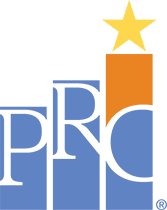Though the exact reasons remain unknown, Americans continue to face mental health obstacles in staggering numbers. As more people, ranging from children to the elderly, report regular symptoms of poor mental health, awareness and help-seeking behaviors also increase.
In addition to the thousands of patient surveys PRC conducts annually, PRC is also the only research firm conducting regular national studies to collect comparative data for its Community Health Needs Assessment (CHNA) clients. The latest PRC National Health Survey reflects a random sample of 1,000 Americans interviewed through a mixed mode protocol.
Depression
According to the DSM, depressive disorders broadly refer to the presence of sad, empty, or irritable mood, accompanied by cognitive changes that significantly affect an individual’s capacity to function. Findings from the 2015 PRC National Health Survey reveal that 30% of US adults describe having two or more years in their lives when they felt sad or depressed on most days, nearly a 10% increase since PRC’s first measurement in 1995. Overall, 18% of US adults reported having been diagnosed with a depressive disorder.
Stress
Stress levels, which have a close relationship with anxiety disorders, obsessive-compulsive and related disorders, and dissociative disorders, have also increased. Since first measured by PRC in 2005, the proportion of US adults rating their typical day as “extremely” or “very stressful” has increased by about 4%. Common stressors include employment, worrying about paying rent/mortgage, and experiencing difficulty accessing healthcare.
Seeking Help
While both depression and stress disorders have increased, so have the number of people seeking mental health care. More than one out of every four Americans have sought mental health treatment in their lifetime, with a nearly 20% increase since 2001 among those reporting symptoms of chronic depression. As cost and insurance remain the largest hurdle for providing care to those in need, it is imperative to continue working towards a model which opens access to the individuals at risk and in need.
For a complete report and analysis of PRC’s findings, download the CHNA Mental Health Brief below.
Fill out the form below to download the CHNA Mental Health Brief!


